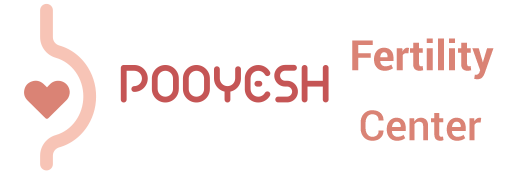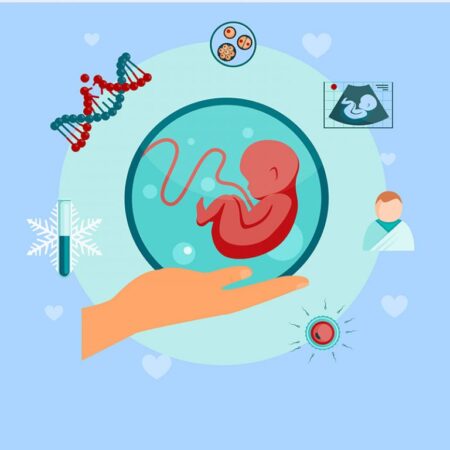Embryo Donation
Pooyesh Fertility Clinic
Embryo Donation
Embryo donation is a modern and compassionate method of assisted reproduction that has brought hope and joy to many infertile couples who had lost faith in other treatments.
Who Can Benefit from Embryo Donation?
In Iran, the most common reason for using donated embryos is non-obstructive azoospermia in men (a complete absence of sperm).
Other indications include:
- The presence of hereditary or chromosomal conditions in one or both partners that could be passed on to children.
- Repeated IVF failures that have not responded to any medical interventions.
- In some other countries, embryo donation is also an option for same-sex couples or single individuals seeking to build a family.
Sources of Donated Embryos at Pooyesh Fertility Clinic
Embryos available in the clinic’s embryo donation bank are typically obtained through two channels:
- 1 Voluntary donation from former patients who have successfully conceived through IVF or ICSI in this clinic and no longer wish to have more children. With their informed consent, they donate their remaining embryos to help other infertile couples.
- 2 Gender selection patients who undergo PGT (Preimplantation Genetic Testing) and choose to donate embryos of the undesired sex. These embryos are donated through a formal written consent process.
How Are Donated Embryos Used?
- Donated embryos are cryopreserved in liquid nitrogen storage tanks and are randomly assigned to eligible recipient couples.
- After preparing the recipient woman’s uterus and endometrial lining, the embryo is transferred into the uterus during a frozen embryo transfer (FET) procedure.
- By law, the donor and recipient couples must remain anonymous to each other.
Eligibility Requirements for Embryo Recipients
- A referral letter from both a gynecologist and an urologist, confirming the medical need for embryo donation
- A court authorization letter (legal approval)
- No underlying health conditions that would pose serious risks to the mother or fetus during pregnancy (e.g., uncontrolled hypertension, heart disease, diabetes, etc.)
- Internal medicine specialist or cardiologist clearance
- Psychiatric clearance, if more than one year has passed since the court approval
- Negative test results for infectious diseases such as HIV, Hepatitis B and C, syphilis, etc.
If more than six months have passed since court approval, these tests must be repeated - Negative drug screening for both partners (repeat testing is required if the court letter is older than six months)
- A suitable uterus for pregnancy
- No familial or personal acquaintance between the donor and recipient couples
- Original and photocopies of both partners’ birth certificates
- Both partners' national ID cards
- Iranian citizenship is required for both partners.
Note for International Patients:
Foreign recipients are matched exclusively with non-Iranian donated embryos.

